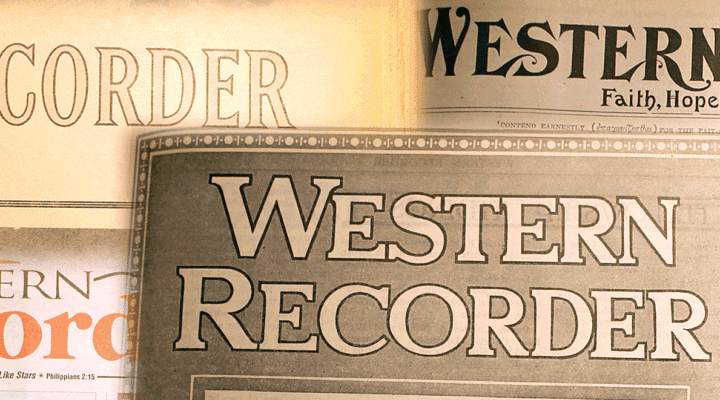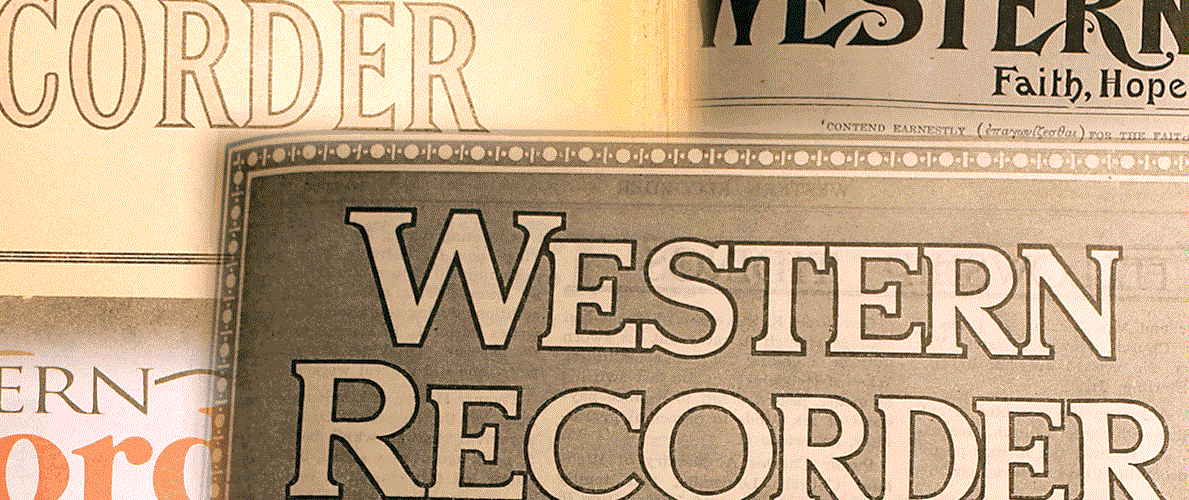The Western Recorder, the second-oldest Baptist newspaper in America, will cease publication March 31.
Once a flagship paper among a large network of state Baptist publications, the newspaper has fallen victim to the same trends afflicting newspapers and denominational communications at the same time.
Todd Gray, executive director-treasurer of the Kentucky Baptist Convention, said the number of paid subscriptions no longer could support the cost of printing the Recorder. In 2019, the state convention assumed full control of the newspaper, which previously had been an autonomous agency affiliated with the state convention. Dwindling finances also were cited as a reason for that move.
Prior to that, the state convention had launched its own publication, Kentucky Today, which was seen as a competitor to the Western Recorder, although created as a house organ from the outset. Prior to 2019, the Recorder had enjoyed complete editorial freedom and was managed by its own board of trustees.
The Recorder was published weekly until 2015, when it moved to a biweekly schedule. Then in March 2019 the format changed to a glossy print magazine.
The last four editors of the newspaper are living and remain active in Baptist life: Todd Deaton, now managing editor of the Baptist Courier in South Carolina; Trennis Henderson, now a national correspondent for Woman’s Missionary Union; Mark Wingfield, now executive director and publisher of Baptist News Global; and Marv Knox, now coordinator of Fellowship Southwest. All four have had distinguished journalism careers in Baptist life and were nationally known for their work at the Recorder.
Founded in 1825, the Western Recorder was so named because Kentucky at the time was the western frontier of the United States.
In the modern era, the paper reached its zenith under the editorship of Chauncey Daley, who was known as a fierce advocate for racial equality in the 1950s and 1960s. Later, the paper played a key role in documenting the fundamentalist takeover of the Southern Baptist Convention and the sharp turn in direction of Southern Baptist Theological Seminary in Louisville as part of that movement.
Prior to the turn of the 21st century, there were about 35 print newspapers serving state Baptist conventions affiliated with the Southern Baptist Convention. Most of those were weekly publications.
Today only five of those remain as print publications that are mailed into subscribers’ homes. The Tennessee Baptist and Reflector, the Baptist New Mexican, the Oklahoma Baptist Messenger and the Pathway in Missouri publish biweekly print editions. And the Alabama Baptist now stands alone as the one state paper publishing a weekly newspaper that is mailed into homes.
The Alabama Baptist and the Texas Baptist Standard (which is now an online-only publication) and Missouri’s Word&Way (a monthly magazine with an online presence) — are the three remaining publications with autonomous governance.
Several state Baptist conventions produce monthly or quarterly magazines featuring ministry efforts in the state, and all states have some level of content provided digitally.
The oldest Baptist state paper in America is Georgia’s Christian Index, dating to 1822, which is an online publication now and fully owned by the Georgia Baptist Convention.
The Religious Herald, operating in Virginia since 1828, ceased print publication in a merger with Associated Baptist Press creating Baptist News Global in 2014.
While the Western Recorder will cease monthly publication March 31, a magazine produced for the Kentucky Baptist Convention annual meeting will continue to bear the name officials said.


